Are some clubs running a racist door policy?
- Published
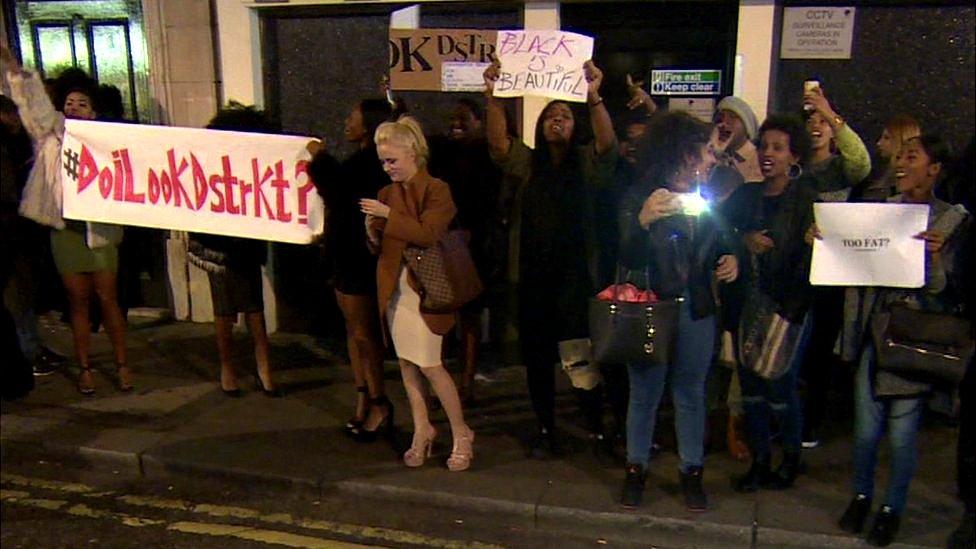
Protests at DSTRKT club sparked discussions on social media, with many saying it's a wider issue
Door policies at clubs across the UK are being criticised on social media after four women claim they were turned away from a London venue because of their skin tone and weight.
Others are now sharing similar stories from different nightclubs across the country.
One of the women involved, Zalika Miller, says she "couldn't believe the amount of support" they've had online.
A manager at DSTRKT told Newsbeat no-one is turned away because of race.
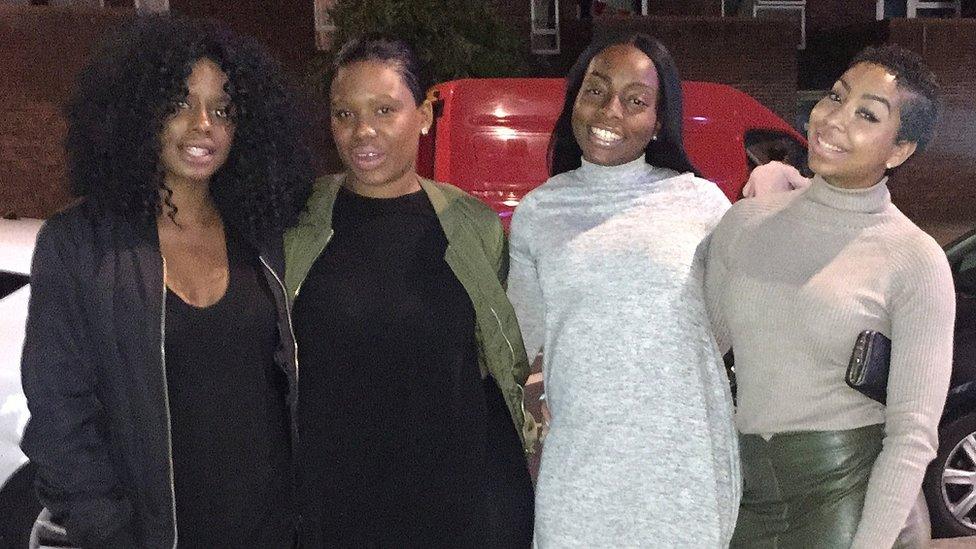
Zalika Miller pictured on the left with her friends Reisha (second left), Tasha (second right) and Lin Mei (far right)
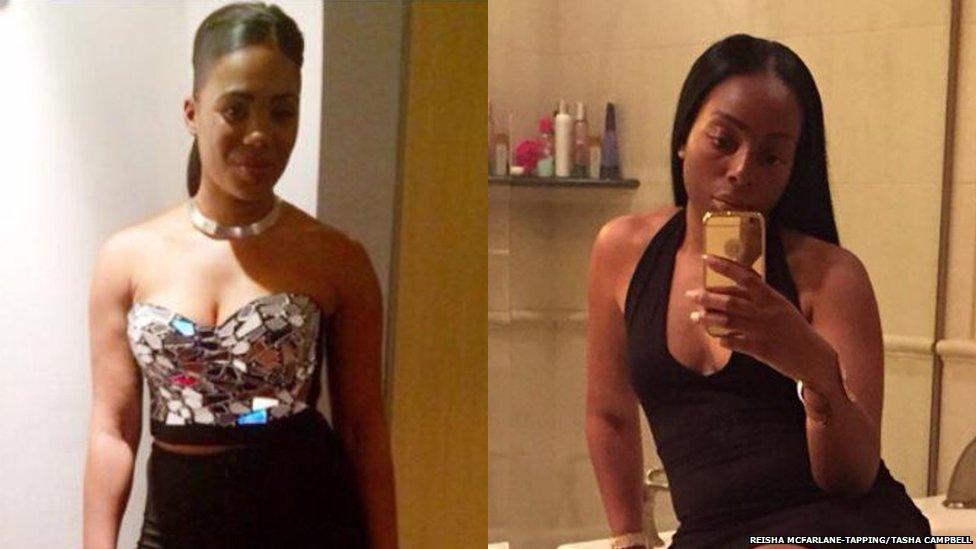
It's claimed that Reisha and Tasha were not allowed into the club
Dev from Radio 1's weekend breakfast show tweeted that clubs in London's West End were some of "the worst I've ever experienced" and that it was something he'd noticed across the UK.
Actress Bunmi Mojekwu, who is best known for playing Mercy Olubunmi in EastEnders, was at a protest outside the club in question on Tuesday night.
She told the BBC her experiences have been "quite traumatic".
She has been turned away from clubs in Paris and Miami as well as the UK.
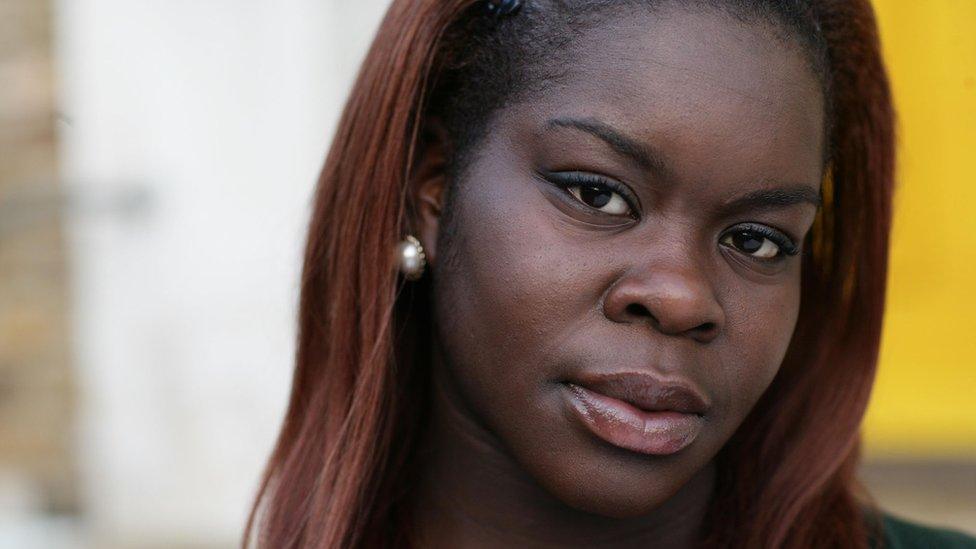
Bunmi Mojekwu is best known for playing Mercy Olubunmi in EastEnders
One club didn't let her and a group of friends in because they "don't let that many black girls in" and told her she "should have come with at least one white friend".
"It really pains me - that's why I don't really come to this sort of club any more," said Bunmi. "I like to go where I get to enjoy myself and feel comfortable."
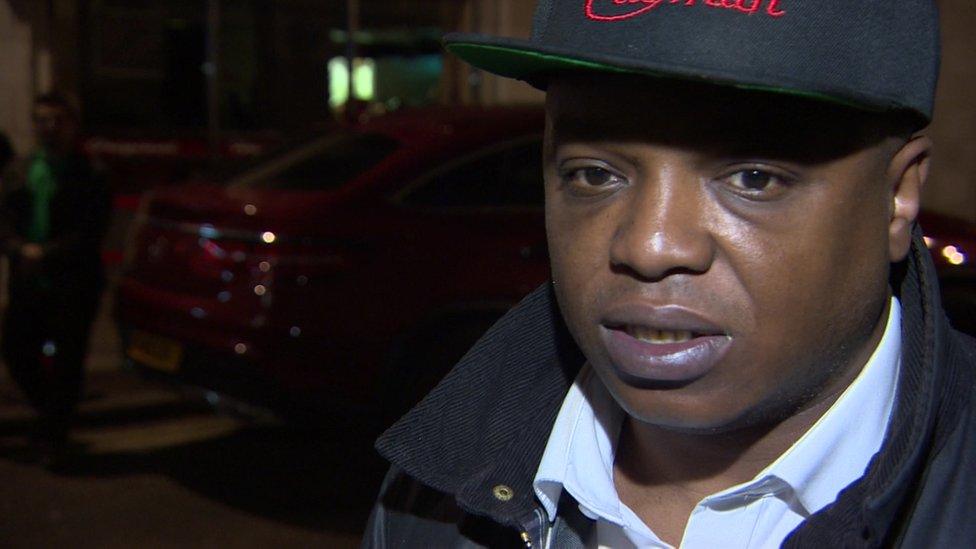
Corky Clubman told the BBC that selective door policies are fairly common across London
A man who refers to himself as Corky Clubman works with bars and nightclubs across London, helping them put together their guestlists.
Speaking to the BBC near the DSTRKT protests he claimed: "In all honesty I think the reality is that they [some clubs] do want white people in the clubs. That's a fact. It's a harsh fact but it's a fact.
"I've taken nice-looking black customers to the door and they've not been let in and I've taken scruffy-looking white people to the door and they go in. I don't know how you can explain it."
In a series of tweets, grime artist Stormzy discussed his experiences and said people should "expose" discrimination in clubs.
See Stormzy's tweet about not being let in, external
See Stormzy's tweet: "Looking back I shouldn't have even performed", external
Meanwhile, hip-hop duo Krept and Konan say they've been turned away before at a nightclub.
"They said, 'There's too many black boys in there' and we couldn't get in. But we ended up getting in anyway. It happens. It's just the way it goes.
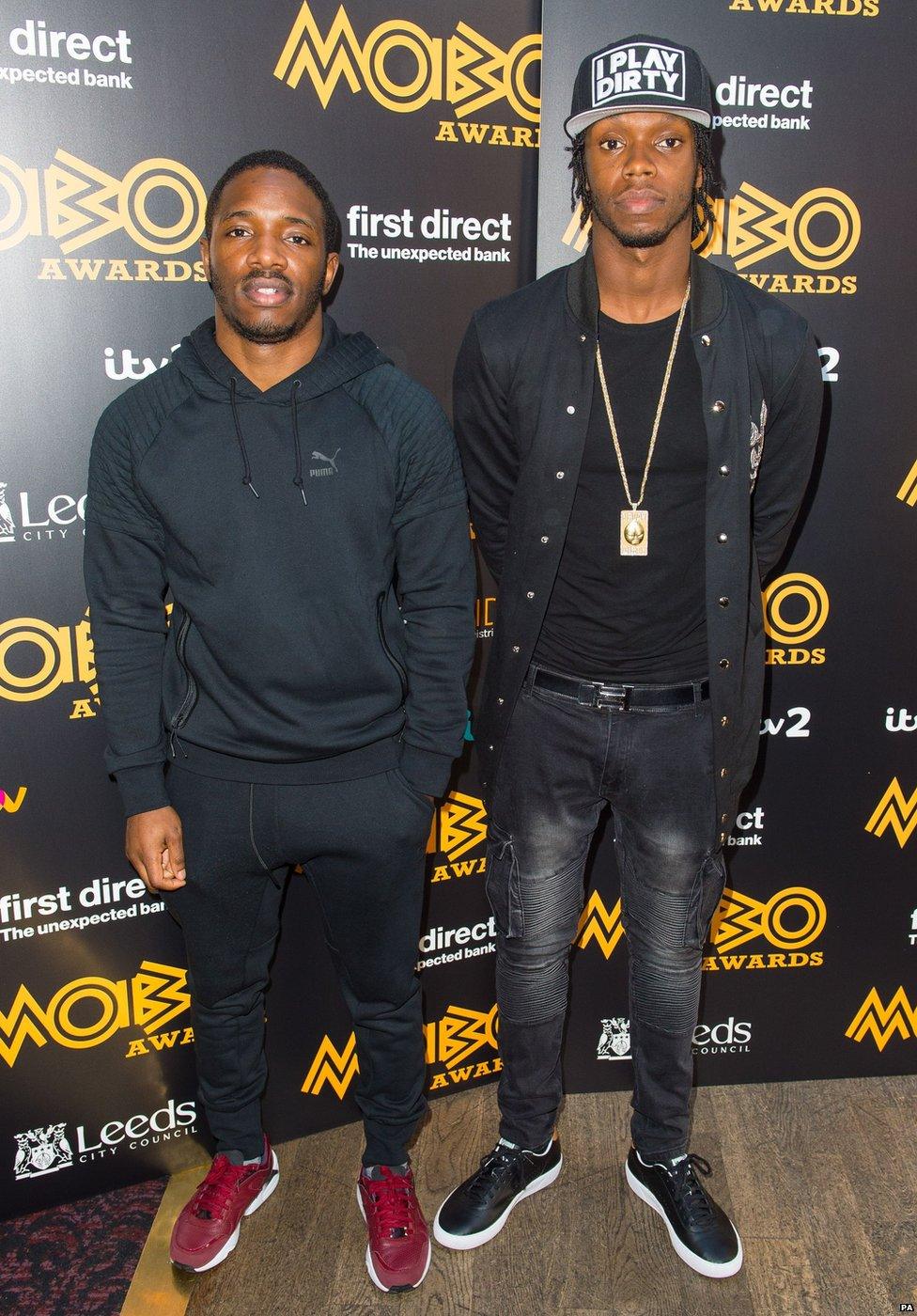
Krept and Konan
"I feel like there's nothing you can do. That's the perception of lots of black boys. I know it's nothing personal.
"I've been in a club where things have happened because there's black boys. You can't be naive about the situation."
Tinchy Stryder has visited the club in the past, but said he wouldn't be going again.
"It's nothing new, but if it doesn't stop now it's never going to stop.
"What kind of policy is that because of someone's skin colour?
"It happens in a lot of clubs and it's good people protest."
Follow @BBCNewsbeat, external on Twitter, BBCNewsbeat, external on Instagram, Radio1Newsbeat, external on YouTube and you can now follow BBC_Newsbeat on Snapchat